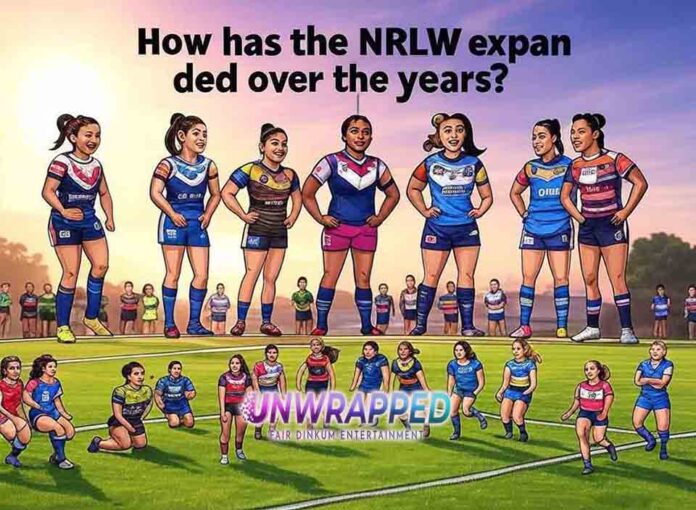The National Rugby League Women’s (NRLW) competition has grown exponentially since its inception in 2018. From a modest beginning with four founding teams to its current multi-team format, the NRLW has become a powerful platform for women’s rugby league, showcasing incredible talent and fostering gender equity in sports. In this blog, we’ll take a closer look at the league’s journey, its milestones, and what the future holds for this rapidly evolving competition.
The Origins of the NRLW
The idea of a professional women’s rugby league competition had been discussed for years before the NRLW officially launched in 2018. Recognizing the growing popularity of women’s sports and the success of grassroots initiatives, the NRL decided to create a league that would mirror the professional standards of the men’s competition.
The First Season: 2018
- Teams: The inaugural season featured four teams:
- Brisbane Broncos
- Sydney Roosters
- St. George Illawarra Dragons
- New Zealand Warriors
- Format: The season was short, consisting of just three regular-season rounds followed by a Grand Final.
- Outcome: The Brisbane Broncos dominated, winning the first premiership in a one-sided final against the Roosters.
While the season was brief, it laid the foundation for the NRLW’s future growth, demonstrating the high skill level of players and strong fan interest.
The First Phase of Expansion: Adding Teams
2021: A Turning Point
In 2021, the league expanded to include three additional teams:
- Parramatta Eels
- Newcastle Knights
- Gold Coast Titans
This marked a significant step forward, as it increased the number of players involved and extended the competition’s reach to more cities. The expansion also introduced fans in new regions to professional women’s rugby league, broadening the league’s fan base.
The Role of Media and Sponsorship
Increased Media Coverage
The NRLW gained considerable traction through broadcast partnerships with major networks like Channel Nine and Fox Sports. Live coverage and replays on streaming platforms like Kayo Sports further amplified its reach, making matches accessible to a global audience.
Sponsorship Growth
Corporate sponsorships, such as Harvey Norman’s long-term partnership, provided crucial financial support. These sponsorships allowed the league to improve player payments, enhance training facilities, and fund grassroots development programs.
Challenges Along the Way
While the NRLW’s growth has been remarkable, it hasn’t been without its challenges:
- Player Payments: Initially, payment disparities between the NRL and NRLW sparked debates. However, progress has been made toward reducing the pay gap.
- Season Length: Short seasons were a sticking point in the early years, with players and fans advocating for longer formats.
- Talent Distribution: Ensuring competitive balance has been a challenge, particularly with dominant teams like the Broncos winning multiple titles in the league’s early years.
Expanding Again: The 2023-2025 Era
2023: A 10-Team Competition
The 2023 season saw the league expand to 10 teams, a significant milestone in its evolution. The new additions included:
- Canberra Raiders
- Cronulla Sharks
- North Queensland Cowboys
- Wests Tigers
2025: Beyond Expansion
By 2025, discussions were underway to further increase the number of teams, solidifying the NRLW’s status as a premier women’s sports competition. The league also introduced a full-length season, aligning more closely with the men’s format.
Grassroots Development and Pathways
Junior Leagues and Pathways
To support the growing competition, the NRL invested heavily in junior leagues and development programs like the Tarsha Gale Cup. These initiatives created a steady pipeline of talent, ensuring the NRLW would remain competitive and sustainable.
Community Engagement
NRLW teams have actively engaged with local communities, conducting clinics, school visits, and charity events. These efforts have inspired young girls to take up rugby league and contributed to the sport’s growth at the grassroots level.
Key Milestones in NRLW History
- First Grand Final (2018): The Brisbane Broncos’ victory marked the beginning of a new era for women’s rugby league.
- First State of Origin Match (2018): The Women’s State of Origin has since become a marquee event, attracting record-breaking audiences.
- Introduction of Full-Length Seasons (2024): A significant step in professionalizing the competition.
What Sets the NRLW Apart?
Representation
The league represents a diverse range of communities, offering opportunities for Indigenous and Pasifika players to shine. This inclusivity has enriched the competition and fostered a sense of unity.
Quality of Play
The NRLW showcases world-class athleticism, with players delivering thrilling matches filled with skill, strategy, and intensity.
Fan Engagement
Fans have embraced the NRLW, with strong attendance figures and robust engagement on social media platforms.
The Future of the NRLW
Further Expansion
The league is expected to continue adding teams, with potential for an eventual 16-team competition. This would make the NRLW one of the most expansive women’s sports leagues globally.
International Opportunities
With rugby league gaining traction in countries like the USA, Papua New Guinea, and the UK, the NRLW could explore international exhibition matches or partnerships.
Increased Investment
As the league grows, continued investment from broadcasters, sponsors, and the NRL will be essential to support infrastructure, player welfare, and grassroots development.
Call to Action
The NRLW’s story is one of resilience, growth, and community spirit. As fans, you can contribute to this incredible journey by attending games, supporting your local team, and following the league online. Together, we can ensure the continued success of women’s rugby league.
See Also: What is the history of the NRLW?










